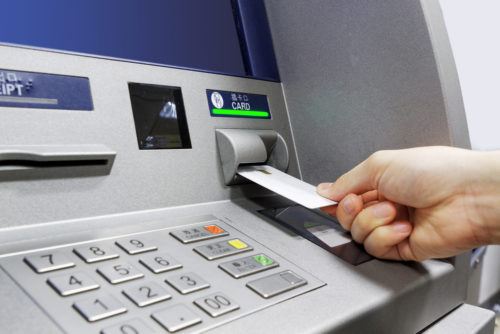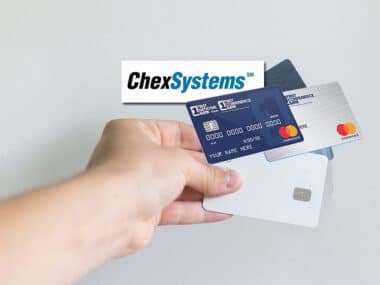Table of Contents
What is the Electronic Funds Transfer Act?
The Electronic Funds Transfer Act (EFTA) is a consumer protection measure that went into law in 1978. The EFTA establishes your rights and liabilities, as well as the liabilities of financial institutions, when you engage in the electronic transfer of money.
The most important aspect of the EFTA is how it shields you from liability if your credit card or debit card is lost or stolen. The EFTA says you are not liable for charges on your card after you lose it or someone steals it. The minute you report a lost or stolen card, you are no longer liable for charges on that card.
Electronic Funds Transfer Definition and Examples
According to the text of the Electronic Funds Transfer Act, an electronic funds transfer is “a funds transfer initiated through an electronic terminal, telephone, computer (including online banking) or magnetic tape for the purpose of ordering, instructing, or authorizing a financial institution to debit or credit a consumer’s account.”
Whenever you use an electronic method to move money around, whether it’s a withdrawal, deposit, or purchase, it’s an electronic transfer. Here are some examples:
- Automatic Teller Machine (ATM): An ATM allows you to make withdrawals, deposit/transfer funds, and check your account balance electronically. The first official ATM appeared on June 27, 1967 at a Barclays bank in London. Curiously, no single inventor can be credited with the invention of the cash vending machine.
- Cards: Debit cards initiate a checking account transaction, while credit cards allow you to borrow funds from a financial institution.
- Point-Of-Sale (POS): Whenever you make a purchase with credit or debit card, a request for an electronic funds transfer occurs at the point of sale. When your financial institution’s digital processes verify your card, the request is granted, and the amount of your purchase is entered onto an electronic ledger and applied to your account balance.
- Phone: You can make an electronic funds transfer via phone to make purchases, pay bills, and transfer money between financial accounts. To do so, you have to provide numerical account information and information to verify your identity.
- Direct Deposit: By providing bank account information to your employer, you can authorize them to pay you via electronic funds transfer.
- Online: Electronic funds transfers happen online in the form of e-banking and e-commerce, as well as via cryptocurrency exchanges. People spent $2.3 trillion online in 2017, and analysts believe that number could rise to $4.88 trillion by 2021. People make online EFTs via apps like Paypal and Venmo, by entering credit or debit card information into forms on merchant websites, and by providing bank account information to recipients.
EFTA Prepaid Accounts Rule
Not too long ago, prepaid cards didn’t have the same fraud and loss protection as other electronic funds. Many consumers without bank accounts would use prepaid cards in order to avoid overdraft fees and other trappings of the banking system, but if someone stole your prepaid card, you were liable for the loss.
Early in 2018, the Consumer Financial Protection Bureau (CFPB) issued a rule to protect people who use prepaid debit cards under Regulation E (Regulation E puts the Electronic Funds Transfer Act into effect).
Starting April 1, 2019, people who use prepaid cards will be protected from loss and fraud if they register the card. To register the card, you have to provide identity verification information, such as your Social Security number, to the card issuer. Once your card is registered, you can dispute fraudulent charges or electronic errors, and you’re protected against loss or theft, just like you would be with a regular debit card.
Even if you don’t register it, before you purchase a prepaid debit card the card issuer has to provide you with clear information as to any fees you could incur with its use. Furthermore, you’ll now have free and easy access to account information by phone.
What is the Purpose of the Electronic Funds Transfer Act?
The primary purpose of the EFTA is to protect you from fraud and loss. In the event that you lose your credit or debit card — or someone steals it — you shouldn’t have to pay if the thief makes purchases with your card. This is the premise the EFTA operates under, and it applies to any other sort of electronic transaction, not just a credit or debit transaction.
Liability Under EFTA
The EFTA requires your financial institution to notify you about your liabilities if your card is lost or stolen. The institution must give you a contact phone number in case of loss, as well as a thorough description of the error resolution process.
Here are your liabilities under the EFTA:
- If you don’t report a lost or stolen card within 60 days, you’re responsible for all unauthorized charges after 60 days.
- If you notify your institution about the loss within 3 to 59 business days, you could be responsible for up to $500 in charges.
- If you notify them within 2 business days, you’re responsible for no more than $50 in charges.
When it comes to electronic errors, there are also responsibilities to both you and your financial institution.
Responsibilities
Here are your responsibilities in the event of an EFT error:
- When you notice an error, call, write, or contact your financial institution online as soon as possible.
- If you don’t contact them within 60 days, you’re responsible for any loss thereafter.
- You must be able to provide your account number and other identifying information; be prepared to explain the details of the error.
Here are your financial institution’s responsibilities:
- They must resolve any error within 45 days; if it’s a new account, a POS mistake, or a foreign transaction, resolution could take up to 90 days.
- They must compensate you if it takes longer than 10 business days to resolve an error (for new accounts, 20 days).
- They must tell you the result of an error investigation and compensate you if there was an error. If there was no error, they must tell you in writing and provide an explanation of their findings.
Be sure to monitor your accounts and contact your financial institution as soon as you notice an error, or if your card is missing. Provide them with as much information as they need, and the Electronic Funds Transfer Act will protect you from liability.
Image Source: https://depositphotos.com/





